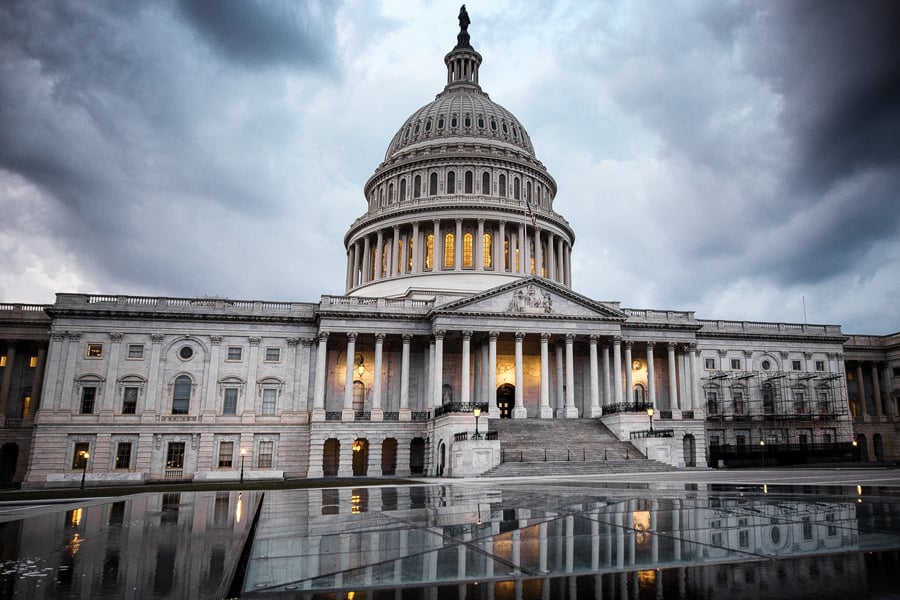

Trade associations that represent financial advisers are rethinking whether they will make political donations to lawmakers who voted against certifying presidential election results.
On Jan. 6, a normally routine House and Senate ratification of the Electoral College vote was halted when a mob supporting President Donald Trump broke into the U.S. Capitol. The insurrection occurred as some members of Congress opposed the election results in Arizona and Pennsylvania, key swing states won by President-elect Joe Biden.
When order was restored in the Capitol, eight senators and more than 130 House members voted to object to the electoral vote in one or both of the states that were in dispute. In the days that followed, major financial firms suspended donations to those who objected, or to all lawmakers.
Washington trade associations that represent financial firms and advisers also are wrestling with whether and how to change their political action committee policies on donations in the wake of the Capitol conflagration.
“I will note who voted against certification so there can be a robust discussion by the PAC board on whether we want to hold off making contributions to those legislators,” said Neil Simon, vice president for government relations at the Investment Adviser Association.
The IAA made $46,000 in political contribution to 2020 campaigns, according to Federal Election Commission data through late November.
The Financial Services Institute, which represents independent broker-dealers and financial advisers and spent about $316,000 on 2020 campaigns, is suspending all donations while it reviews its political contributions guidelines, said FSI spokesperson Allison Kuehner Mutschler.
The Investment Company Institute, which represents the mutual fund industry and contributed about $1.7 million to lawmakers’ 2020 campaigns, also has suspended its political action committee activity “pending review and a discussion with the leadership of ICI’s Board of Governors,” ICI spokesperson Matthew Beck said in a statement.
Likewise, the Insured Retirement Institute, which represents the retirement income sector and spent approximately $275,500, is talking to the firms it represents about political giving.
“It’s a discussion we’ve just started with our members,” said IRI spokesperson Dan Zielinski.
The Securities Industry and Financial Markets Association, a major financial services trade group that spent about $523,500 on 2020 campaigns, did not respond to a request for comment.
[ESG Video: Making of ‘Flowers in the River’]
Interest groups typically donate to incumbent lawmakers who serve on committees with jurisdiction over areas that affect their membership, such as the House Financial Services Committee, the House Ways and Means Committee and the House Education and Labor Committee.
Lawmakers who serve on those panels who have been active on investment-advice or retirement-savings policy in recent years and who objected to the presidential election results include Reps. Blaine Luetkemeyer (R-Mo., Financial Services), Warren Davidson (R-Ohio, Financial Services), Mike Kelly (R-Pa., Ways and Means), Dave Schweikert (R-Ariz., Ways and Means), Virginia Foxx (R-Va., Education and Labor) and Tim Walberg (R-Mich., Education and Labor).

Wealth managers highlight strategies for clients trying to retire before 65 without running out of money.

Shares of the online brokerage jumped as it reported a surge in trading, counting crypto transactions, though analysts remained largely unmoved.

President meets with ‘highly overrated globalist’ at the White House.

A new proposal could end the ban on promoting client reviews in states like California and Connecticut, giving state-registered advisors a level playing field with their SEC-registered peers.

Morningstar research data show improved retirement trajectories for self-directors and allocators placed in managed accounts.
Orion's Tom Wilson on delivering coordinated, high-touch service in a world where returns alone no longer set you apart.
Barely a decade old, registered index-linked annuities have quickly surged in popularity, thanks to their unique blend of protection and growth potential—an appealing option for investors looking to chart a steadier course through today's choppy market waters, says Myles Lambert, Brighthouse Financial.
